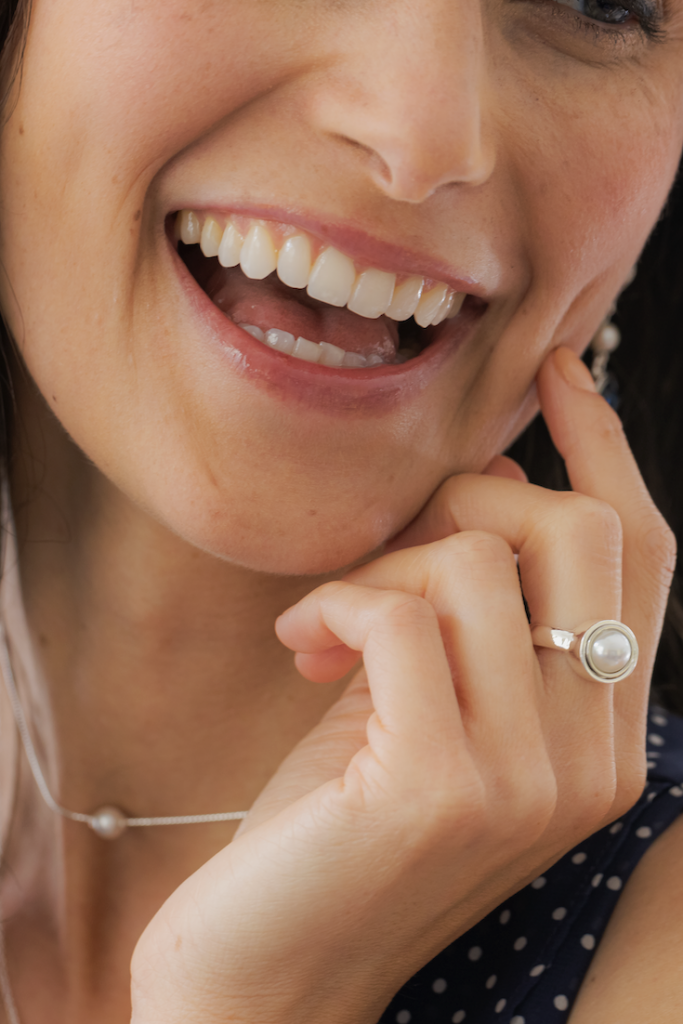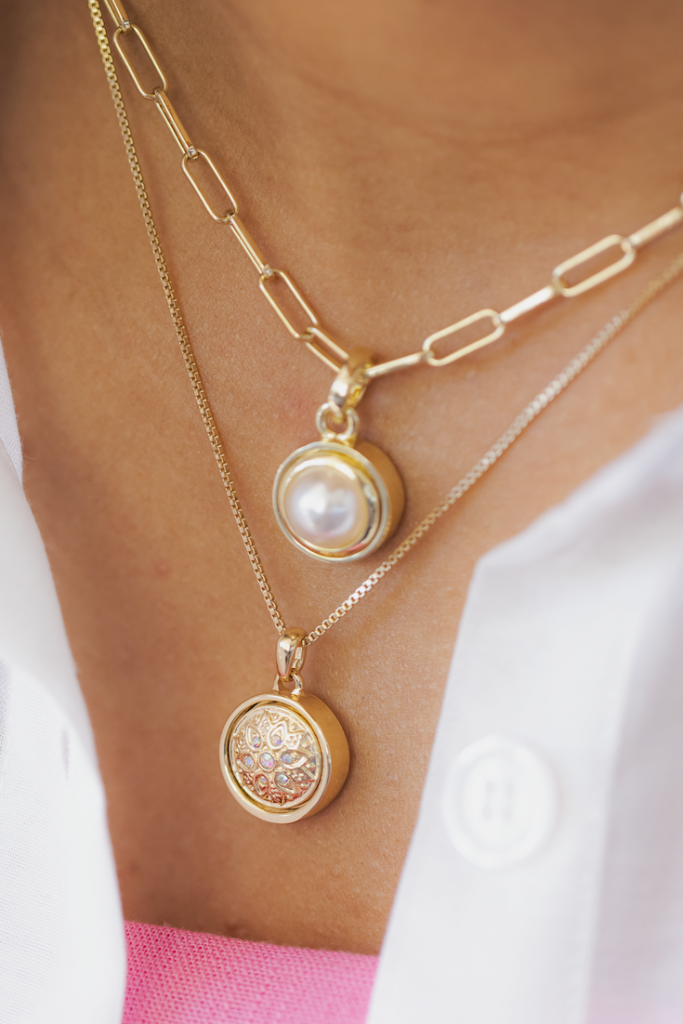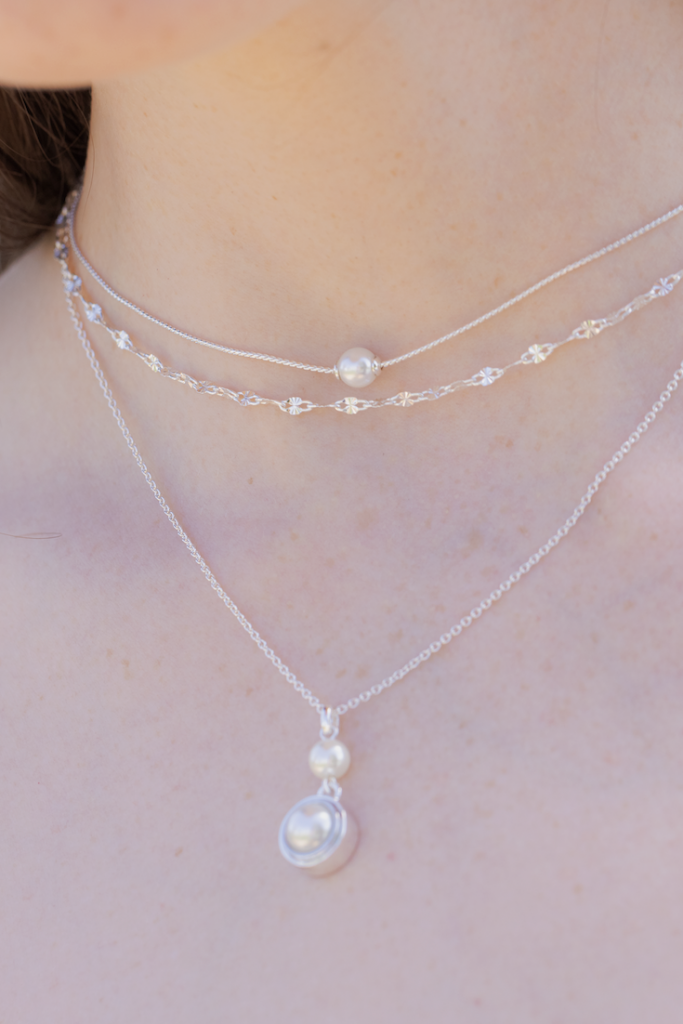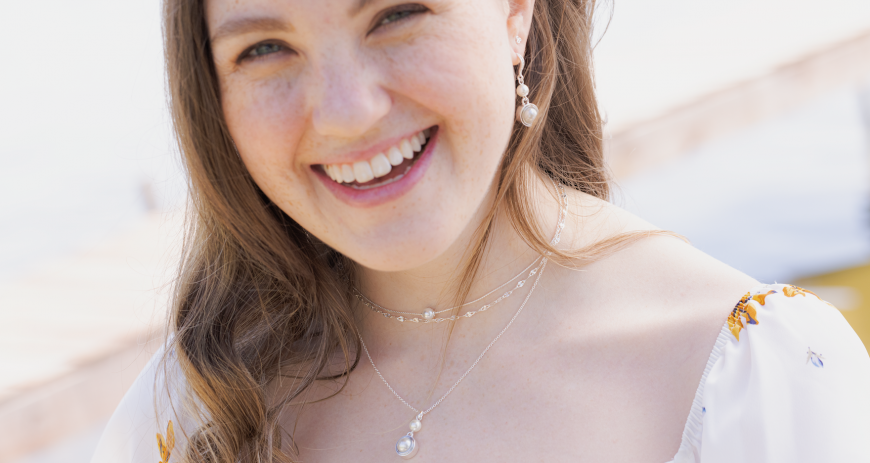 What Is the June Birthstone?
What Is the June Birthstone?
The June birthstone is the pearl. What makes the June birthstone unique is that it is the only birthstone that is organic. This means it’s not formed in the Earth over a long period of time, but rather by a living organism: mollusks (“June Birthstone”). Pearls are also traditionally used to celebrate third and 30th wedding anniversaries.
What Are the Characteristics of the June Birthstone?
Pearls are created by mollusks, specifically marine oysters and freshwater mussels. First, an irritant, such as a parasite or piece of sand, enters a mollusk’s shell and damages its body. Second, the mollusk slowly secretes layers of aragonite and conchiolin—materials that also make up its shell—as a natural defense. Third, these layers create a material called nacre, also known as mother-of-pearl, which surrounds the irritant and protects the mollusk (“How Do Oysters Make Pearls?”).
For cultured, or “human made” pearls, farmers manually insert an irritant into the mollusk to start the making of nacre. According to the Natural History Museum, “Nacre can form naturally around almost any irritant that gets inside the shell, creating some very unique and precious pearls” (“How Do Oysters Make Pearls?”).
 What Is the History of the June Birthstone?
What Is the History of the June Birthstone?
Divers accidentally discovered pearls when they were looking for food (“June Birthstone”). A Chinese historian first wrote about pearls in 2006 BC! The Chinese believed pearls came from the brain of a dragon and that by wearing them, you would be protected from fire and fire-breathing dragons (“Pearl Birthstone”).
In the Atharvaveda, an ancient Sanskrit text, it said pearls provided long life and prosperity. Ancients from the Middle East believed pearls were teardrops from heaven. Some 19th century Arabic doctors believed that pearl powder was able to improve eyesight, depression, and tremors caused by nervousness (“Pearl Birthstone”). In Europe, people considered pearls a symbol of purity, modesty, and innocence. Many cultures associated pearls with the moon (“Fun Facts about Pearls”).
In 1893, Japanese inventor Kokichi Mikimoto figured out a way to grow pearls through a process called “culturing.” By creating a way to grow pearls instantly, Mikimoto made pearls much more affordable and people all over the world wanted them (“June Birthstone”).
Today there are huge mollusk farms where you can find pearl-bearing mollusks. The farmers clean and protect the mollusks from predators and harvest them for pearls. Thousands of years of pearl fishing have ruined natural pearl beds, so most pearls today are cultured pearls.
The cultured pearl comes in a variety of sizes, colors, and shapes (“Pearl Birthstone”). While most people think of pearls as white or cream, black, gray, and silver pearls are also common; and you can actually find pearls in every color (“Fun Facts about Pearls”)!
 Where Can You Find the June Birthstone?
Where Can You Find the June Birthstone?
People have found natural pearls in the Arabian Gulf for 5,000 years, as well as the Red Sea since 300 BCE. They’ve also found pearls in the Strait of Mannar since 2,000 BCE. During Spanish colonial rule in the 16th century, divers recovered large quantities of pearls from the waters off of Mexico, Central America, and Venezuela. But today, you can only find small quantities of pearls in any of these areas (“Pearl Birthstone”).
Pearl farmers grown cultured saltwater pearls in many areas around the world. You’ll find Akoya cultured pearl farms mainly in Japan and China. If you want South Sea cultured pearls, you’ll find those farms along the northern coast of Australia through Indonesia to the southern coast of Southeast Asia, with large farms in the Philippines. Want the famous black Tahitian pearls? You’ll find those farms in the Gambier Islands and the Tuamotu Archipelago, both part of French Polynesia. Freshwater cultured pearls are mainly farmed in China (“Pearl Birthstone”).
For beautiful and unique pearl jewelry that you can customize with interchangeable snap accents to match your style and mood, check out Style Dots’ Pearl Collection. These on-trend pearl pieces are perfect for a night out on the town or just lounging around with your besties.
Visit StyleDots.com today to learn more.
Learn more about birthstones in our Birthstone Guide.
This is an update of an article previously published June 1, 2023.

